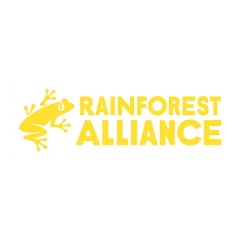Rainforest Alliance response to the IPCC Special Report on Climate Change and Land
The Rainforest Alliance acknowledges and applauds the latest IPCC Special Report on Climate Change and Land as an essential resource and benchmark for policy decision-makers and business leaders.
While almost everyone is now familiar with the idea that greenhouse gas emissions must be curbed through technological advances and reduced reliance on fossil fuels, there is much opportunity to reduce greenhouse gas emissions through changes in agriculture, forestry and other land-use practices, which account for about 24 percent of global greenhouse gas emissions.
Research confirms that forests and other “natural climate solutions” are critical in mitigating climate change, thanks to their carbon sequestering and storage capabilities. In fact, natural climate solutions can help us achieve 37 percent of our climate target, even though they presently only receive 2.5 percent of public climate financing.
“Through its 30-year history, always focused on the nexus of agriculture and deforestation, the Rainforest Alliance’s work directly addresses the issues raised in the IPCC special report,” said Han de Groot, CEO of the Rainforest Alliance. “We must change the way in which agriculture works. And while that certainly means changing farming practices to be more environmentally sustainable, it also must entail a change in how farmers are remunerated for their hard work, the way companies source their ingredients, and what we consume.”
The Rainforest Alliance has used this logic of natural climate solutions as a fundamental engine of our long history of working with both farmers and large companies. Since 1989, we have pioneered more sustainable agricultural and forestry practices in the tropics through our certification standard and other programs. At same time, we have worked with businesses to adopt better sourcing policies, creating real transformation throughout agricultural and forestry supply chains.
“It is important to acknowledge that the food we eat and the way it’s grown has a direct impact on greenhouse gas emissions,” said Aparajita Bhalla, Director Market Transformation, Sectors, for the Rainforest Alliance. “But acknowledging the links between deforestation, land degradation, food security, and climate change is not enough. The work has already started. We need to keep moving towards a more sustainable agriculture system and reap the climate benefits such a system would provide.”
( Press Release Image: https://photos.webwire.com/prmedia/6/244973/244973-1.png )
WebWireID244973
This news content was configured by WebWire editorial staff. Linking is permitted.
News Release Distribution and Press Release Distribution Services Provided by WebWire.
